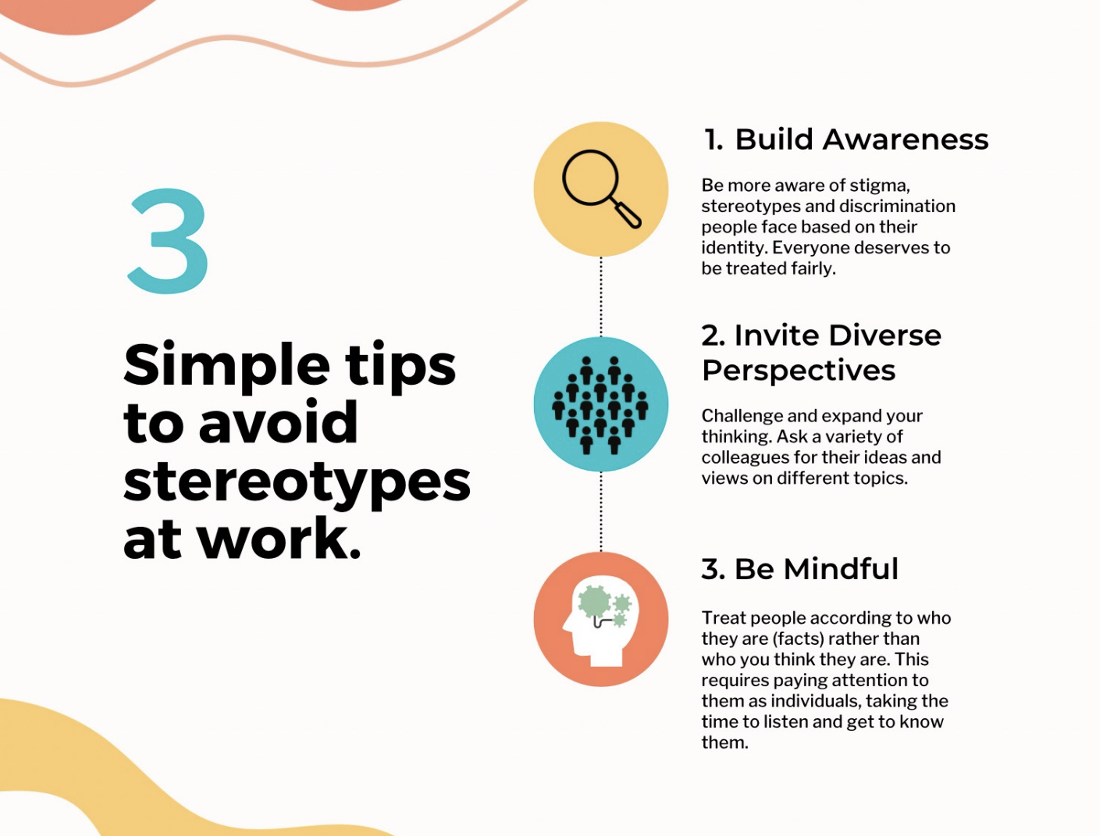Three simple tips to avoid stereotyping at work
She’s too emotional to be a director. The guy with the tattoos doesn’t seem trustworthy to me. There’s no job an autistic person could adequately fulfill at our company. At her age, I’m sure she doesn’t even know what social media is. …
_____________________________________________________
We’ve all heard them, thought them and most likely experienced them at some point in our lives. They’re common generalizations that one group of people holds about another group of people. If you’re not the recipient, you might think they’re simply innocuous, mild assumptions – harmless. They can even be funny or something that helps you bond with your group. But turn the table and that story quickly changes. For those who experience them regularly, stereotypes can evoke a range emotions from mildly irritated to angry, sad or depressed, affecting how a person feels at work and how they work with others. This in turn can have a serious effect on the workplace’s environment, levels of motivation, creativity, collaboration and, even, end results.
So what can we do to curb our instincts to overgeneralize and inaccurately judge people at first sight?
Research shows how we think about and respond to a person is often based on the stereotypes we hold about the social group we believe they belong to. This is information we’ve stored in our brains from years of interactions with family, friends, classmates, colleagues, managers, various media, etc. All the stereotypes we’ve gathered over the years feed into our expectations of people – how we believe they should behave based on the social group we’ve assigned them to. And they can bias the way we think about someone unfairly, before we even get to know them.
It can be hard to break our unconscious biases, but knowing we have them and taking initiative to do something about them is the first step.
Here are 3 simple tips from Christina Cleveland, VP, Diversity and Inclusion at RBC, on how we can look at things in a different, more inclusive light.
- The first is to be more aware of stigma, stereotypes and discrimination people face based on their identity, and remember that everyone deserves to be treated fairly. These actions can reduce the tendency to act according to unfair stereotypes or respond instinctually.
- It’s good to invite diverse perspectives and viewpoints to challenge and expand our thinking. This is particularly beneficial when making a decision. We can try reading or watching something that’s written or produced by a different demographic than what we’re used to. Ask a variety of colleagues for their ideas and views on different topics. These small steps will expand our knowledge and help reduce pre-judgment.
- Finally, we should treat people according to who they actually are (facts) rather than who we think they are (assumptions). This requires paying attention to them as individuals, taking the time to listen to them and get to know them, taking their perspective into consideration and having empathy for their experiences.
Simple tips, yes, but ones that can take a little work to put into practice. However, once we get to a point where we can exercise active listening, empathy and critical thinking easily and on a regular basis, we can break our instinct to oversimplify and better appreciate the nuances and complexities of people, inevitably leading us to more fulfilling and fruitful relationships.

Contributed by Alison Rashleigh and Anita Lall
RBC Marketing D&I Committee



































